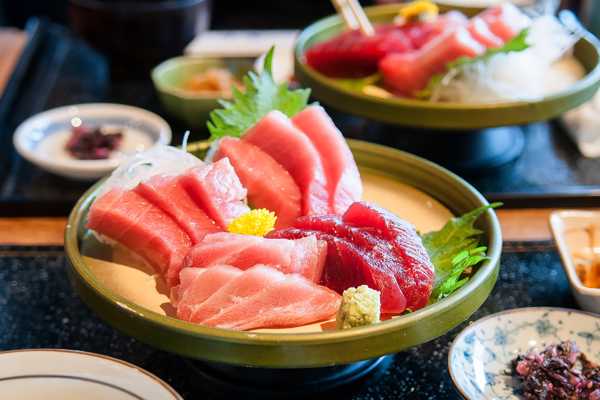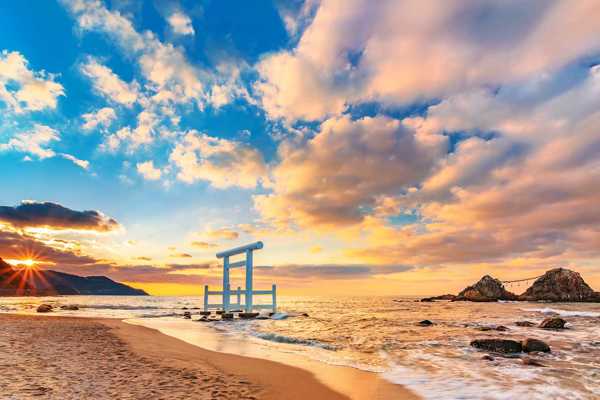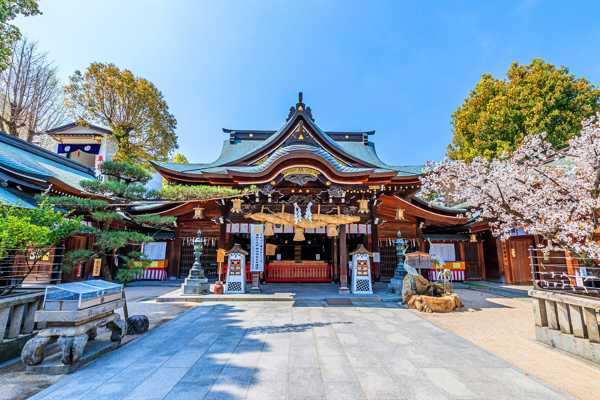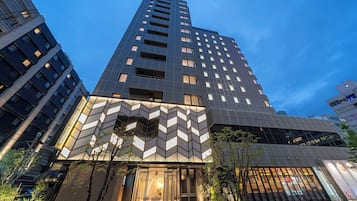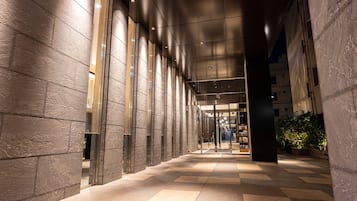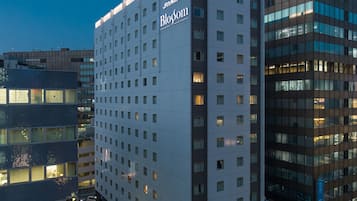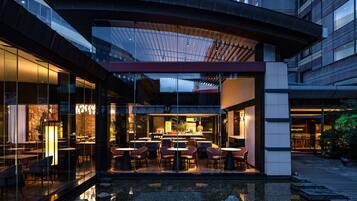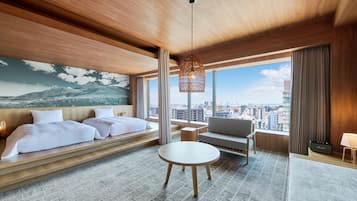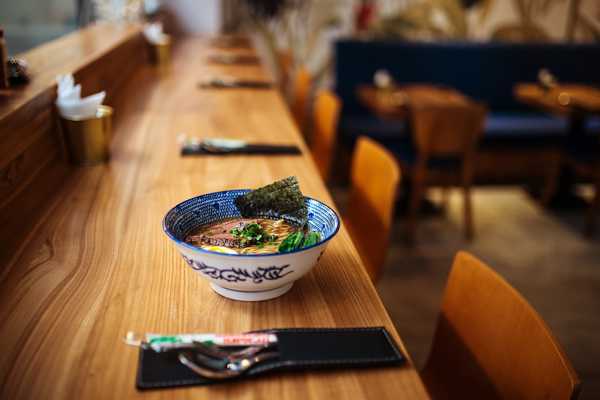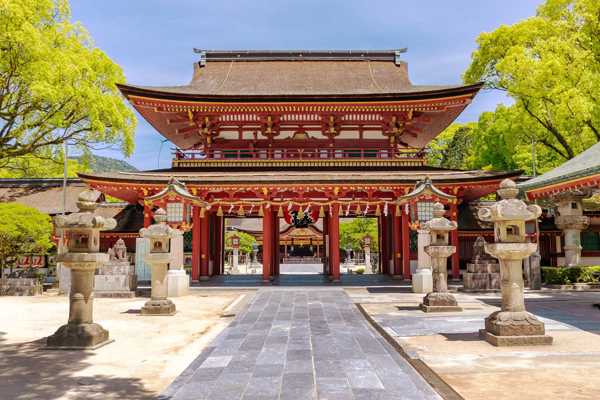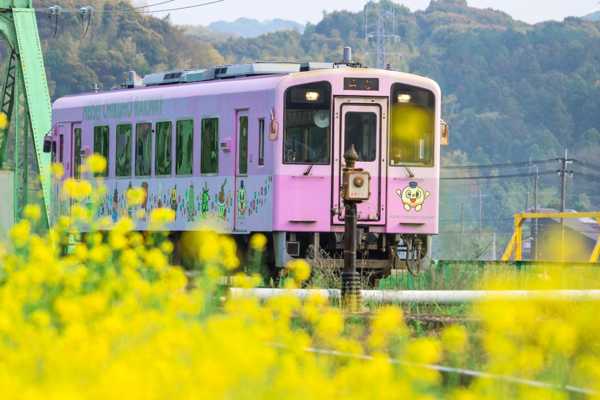Want to enjoy a trip to Fukuoka without breaking the bank? Fukuoka and its Hakata district are packed with attractions that are either free or very reasonably priced. One of the best things about Fukuoka is its great number of historical attractions. Highlights include Kushida Shrine, where Hakata's local Shinto deity is enshrined, and the Fukuoka Castle Ruins. You can also take a rowing boat for a spin at Ohori Park, or feast your eyes on the cherry blossoms and autumn leaves at Maizuru Park. In summer, why not go for a swim at the beach of Momochi Seaside Park? And if you take a tour of one of the factories of Hakata's famous spicy cod roe, free samples are on the menu! Put your credit card back in your wallet and join us on a tour of such reasonably priced highlights of Fukuoka and the Hakata area.
- 1
Fukuoka Castle Ruins and Maizuru Park
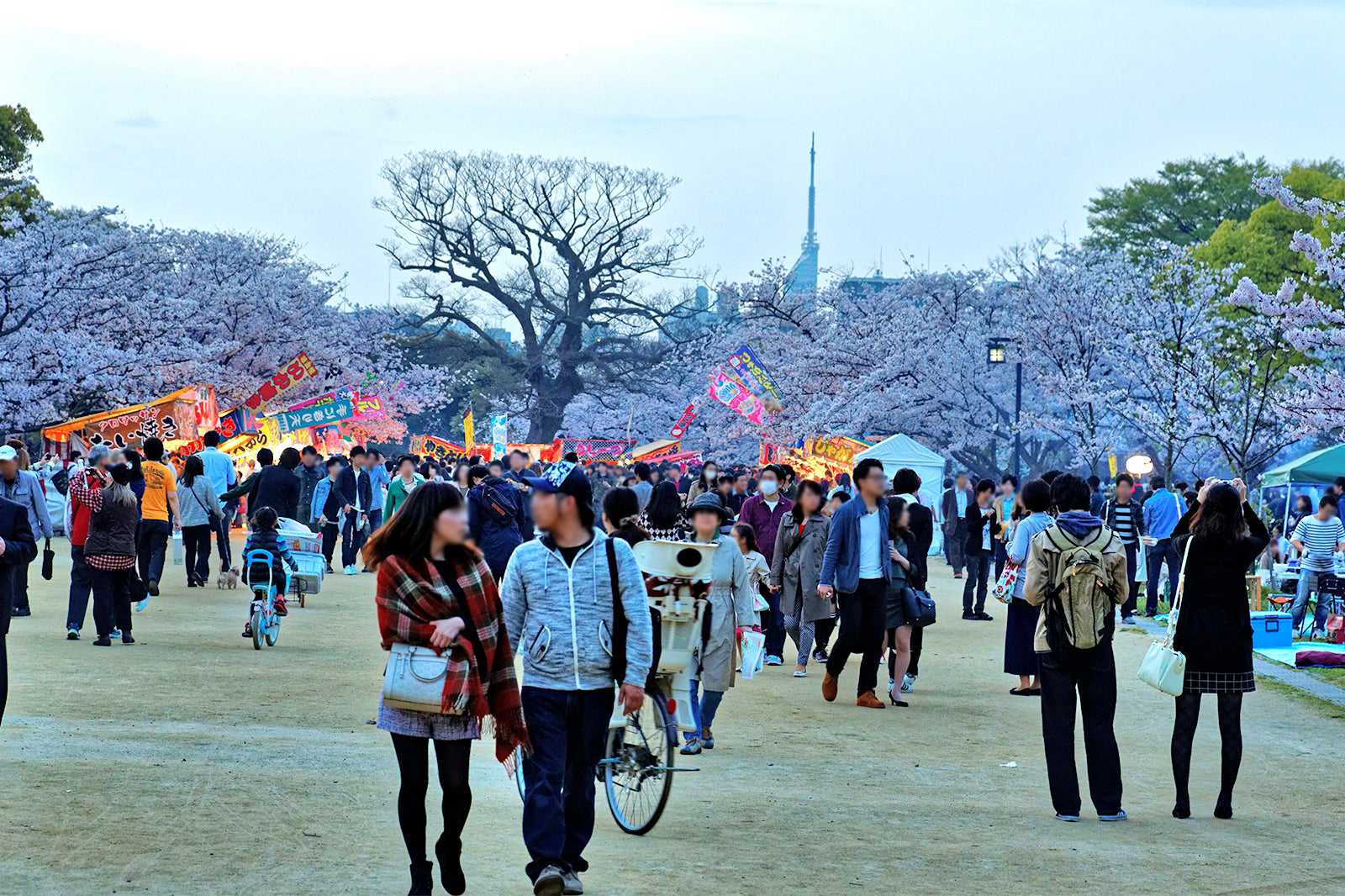
- คู่รัก
- กลุ่ม
- คนโสด
The ruins of Fukuoka Castle are a 15-minute walk from Tenjin in the middle of Fukuoka City. The castle was built in 7 years by Nagamasa Kuroda, who became the Lord of Chikuzen Province after the Battle of Sekigahara. Originally a hilltop castle without a castle tower, it now has 2 towers and an impressive preserved gate. The nearby Maizuru Park is popular for its flowers that are in bloom all year round. Actually, the "Fukuoka Castle Sakura Festival" is held here in the spring, and there are some 1,000 cherry trees within the park. During this period, the cherry blossoms and stone walls are lit up and look spectacular. Also check out the seasonal flowers such as tree peonies, wisteria, water lilies, hydrangeas, and irises, as well as the beautiful autumn leaves. If you want to absorb the history of Fukuoka, there's no better way to do it than by taking a walk through the ruins of Fukuoka Castle that remain in the park.
ที่ตั้ง: Jonai, Chuo-ku, Fukuoka 810-0043, Japan
เปิด: Minamimaru Tamon Tower Front Garden open from 9 am to 5 pm
แผนที่ภาพโดย KimonBerlin (CC BY-SA 2.0) เวอร์ชั่นแก้ไข
- 2
Tenjin Chikagai
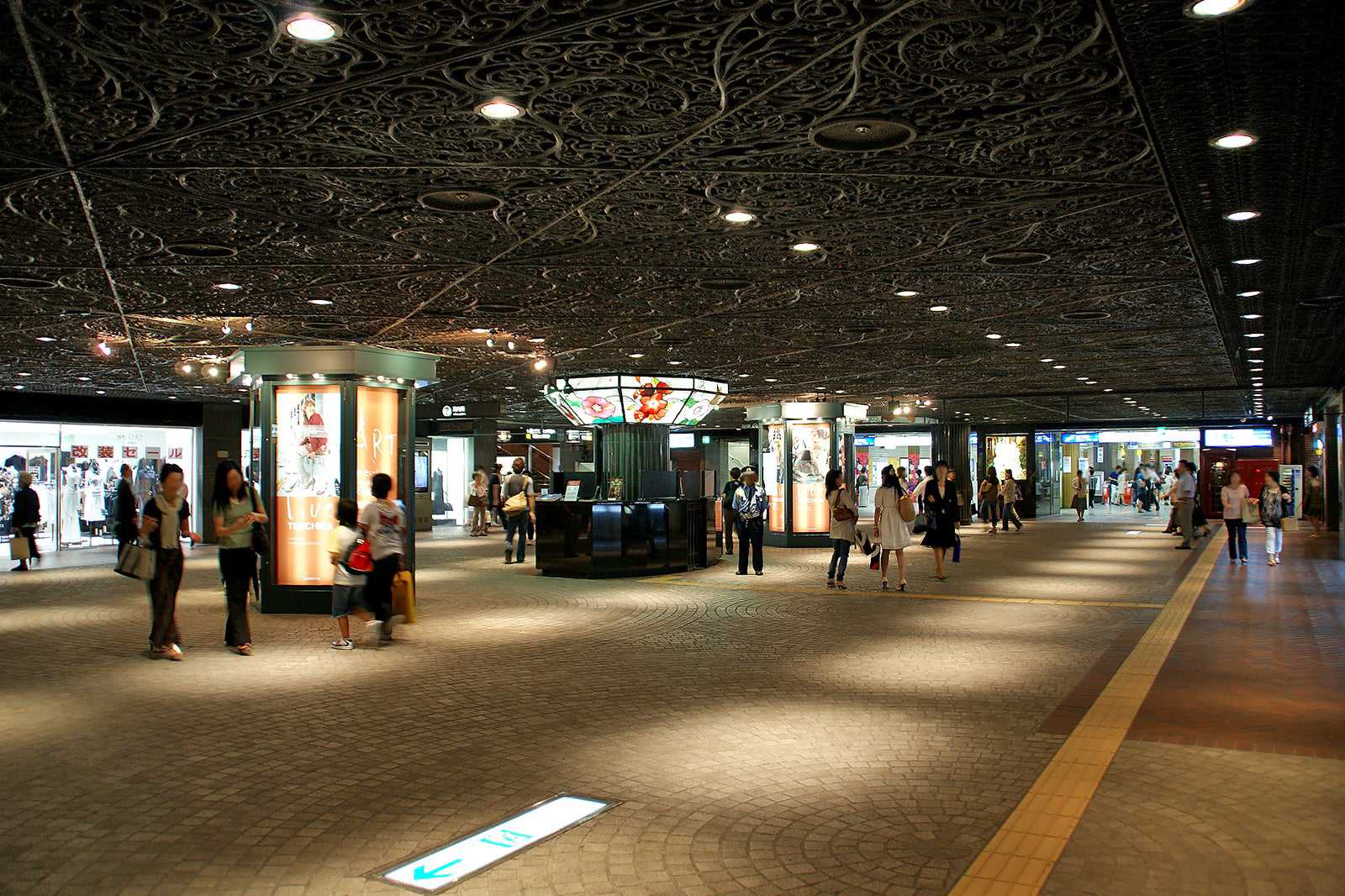
- คู่รัก
- ประวัติศาสตร์
- ขาช้อป
Tenjin is arguably the best downtown area in Kyushu, and you'll get a real understanding of Fukuoka just by walking here. One of its unique features is a 950-metre-long underground shopping mall, commonly known as "Tenchika", which runs north-south through the downtown area. Here you'll find about 150 shops selling fashionable clothes, fine foods, bits and bobs, books, and so on. Running all the way from 1st to 12th Avenue, its cobblestone floors and arabesque ceilings are modelled on the look of Europe in the 19th Century. The stained glass through which calm lighting filters in was custom-made in Milan. Even the 4 toilet areas have specific European influences such as "the library of a British female novelist" and "the villa of the Queen of France". Perhaps the best way to approach Tenchika is by walking from one end to the other and enjoying some window shopping with a coffee break en route.
ที่ตั้ง: B1F-B3F, 2-chome Tenjin, Chuo-ku, Fukuoka 810-0001, Japan
เปิด: Shops open from 10 am to 8 pm Cafés and restaurants open from 10 am to 9 pm Open all year round (closed only on New Year's Day)
แผนที่ - 3
Ohori Park and Ohori Park Japanese Garden
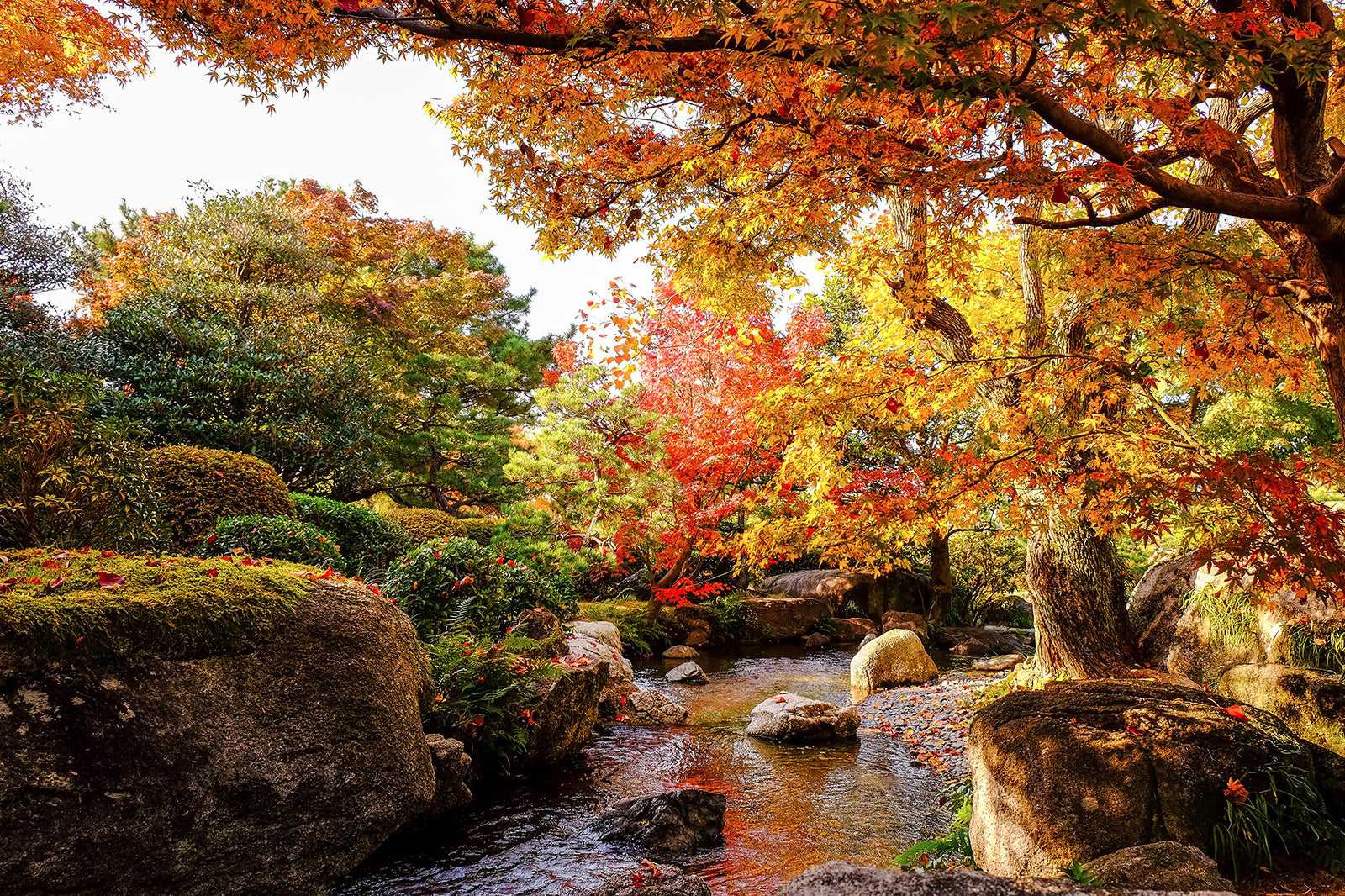
- คู่รัก
- กลุ่ม
- คนโสด
Oohori Park is one of Japan's leading waterscape parks. When the feudal lord Kuroda Nagamasa built Fukuoka Castle in the Edo period, he filled a part of Hakata Bay and used this site as an outer moat for the castle, and the park quickly appeared around the moat. You can rent a swan boat or a rowing boat with which to explore the vast moat. Oh and don't miss the traditional Japanese garden nearby. Here you can enjoy the refreshing beauty of waterfalls flowing at every turn, with a large pond representing the sea as the central point of the garden, and an island floating in the pond set against an artificial hill in the background. The garden has its own natural beauty in each season, from the bright greens of summer to the pine sprouts in winter, so there's something to see no matter when you visit.
ที่ตั้ง: Ohorikoen, Chuo-ku, Fukuoka 810-0051, Japan
เปิด: Japanese Garden Open from 9 am to 5 pm Closed on Mondays (open if Monday is a public holiday, in which case closed on the following Tuesday) and over New Year holidays
แผนที่ - 4
Hakatamachiya Furusatokan and Hakata Traditional Craft and Design Museum
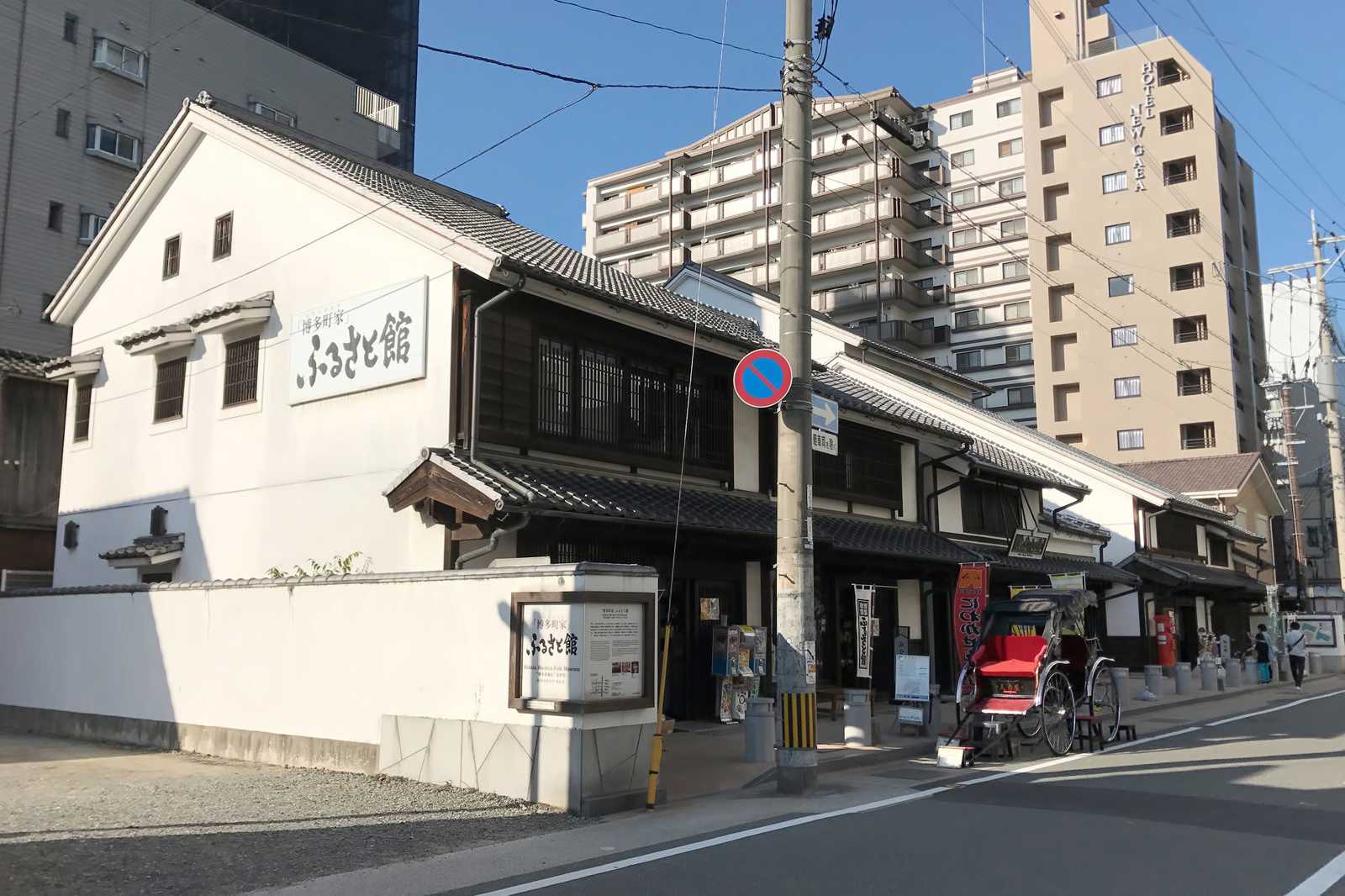
- ประวัติศาสตร์
- ถ่ายรูป
Located in front of Kushida Shrine, which is famous for the Hakata Yamakasa festival, Hakatamachiya Furusatokan is one of the leading tourist attractions in Hakata. Here you can also experience the life and culture of Hakata during the Meiji and Taisho eras. Admission is just 200 yen for adults and free for school-aged children. The traditional townhouse building inside is made by following the architectural style of the day, and there's a magnificent corridor with thick central pillars and elaborate carvings. Artisans are on-hand to demonstrate the Hakata cloth-making process, and you can even try it yourself with a guide to help you. Next, to learn more about Hakata culture, head to the adjacent Hakata Traditional Craft and Design Museum. As well as Hakata dolls and Hakata cloth, traditional crafts such as Hakata songs (Magemono) and Hakata spinning tops (Koma) are also exhibited. The museum gives a great insight into local craftsmanship that's been passed down through the centuries, and best of all: admission is free!
ที่ตั้ง: 6-10 Kamikawabatamachi, Hakata-ku, Fukuoka 812-0026, Japan
เปิด: Open from 10 am to 6 pm Please check the official website for details.
แผนที่ภาพโดย そらみみ (CC BY-SA 4.0) เวอร์ชั่นแก้ไข
- 5
Yamaya Factory Tour
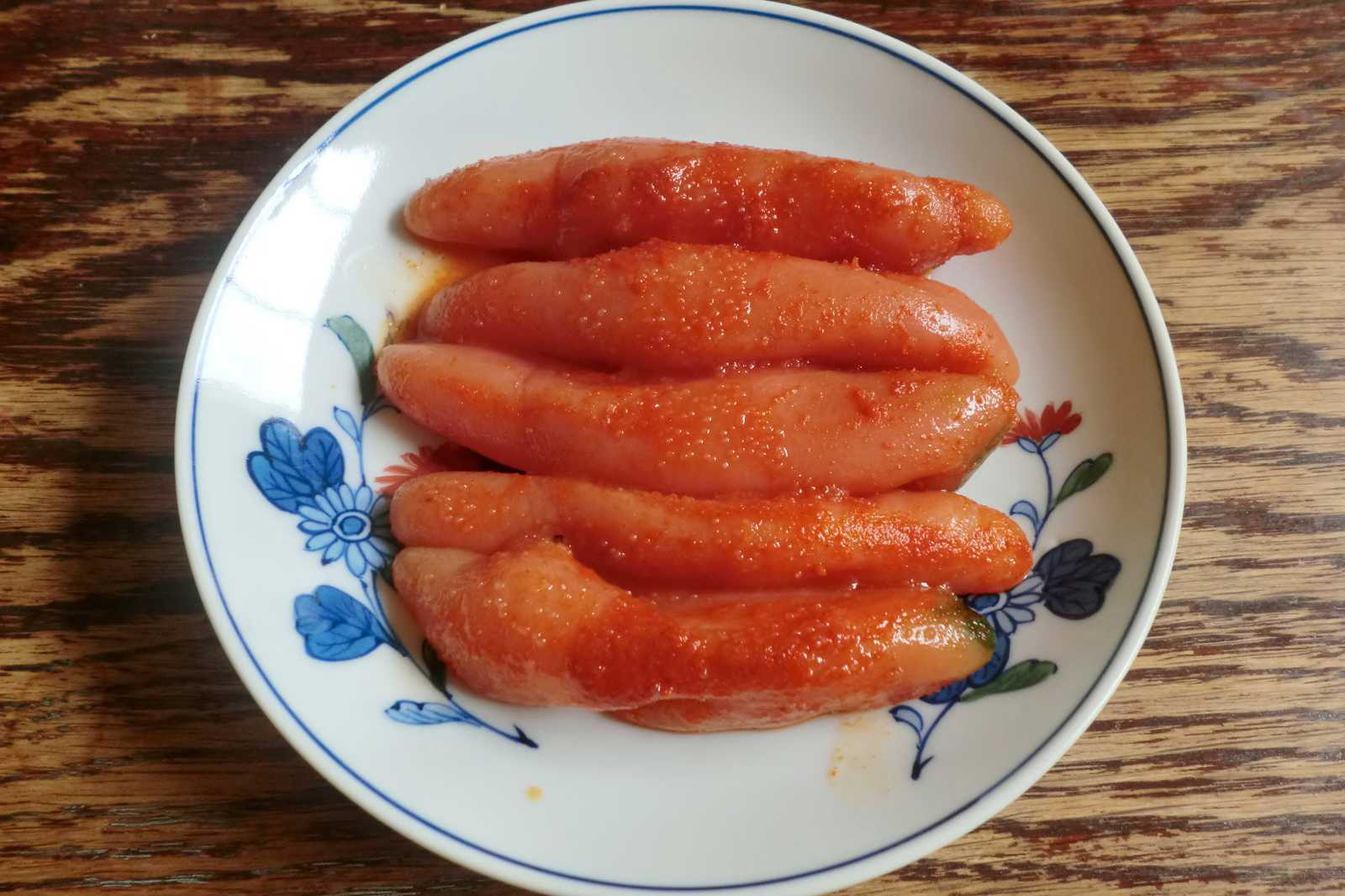
- ประหยัด
- อาหาร
If you like mentaiko (spicy cod roe), the Yamaya Factory Tour offered by producer Yamaya will be just the ticket. You'll need to reserve at least 2 weeks before you intend to visit. If you have an hour to spare, you can observe the complete process of making mentaiko. You'll start by learning some of the key points about making mentaiko, before observing the production process, and then enjoying a tasting of mentaiko after the tour. There are also some discounts offered when you buy mentaiko at the direct sales area during the tour. If you want to enjoy Yamaya Mentaiko outside the factory, try the official YAMAYA BASE NAKASU 2312 shop in Nakasu Kawabata. There you'll find new ways to eat mentaiko, such as "Hakata Mentai France" and sweets made with Yamaya soy sauce.
ที่ตั้ง: 3-31-1 Matsushima, Higashi-ku, Fukuoka 813-0062, Japan
เปิด: Reservation required for factory tour Open from 10 am to 3 pm. Please check the website for details.
แผนที่ภาพโดย Nissy-KITAQ (CC BY-SA 3.0) เวอร์ชั่นแก้ไข
- 6
Kushida Shrine
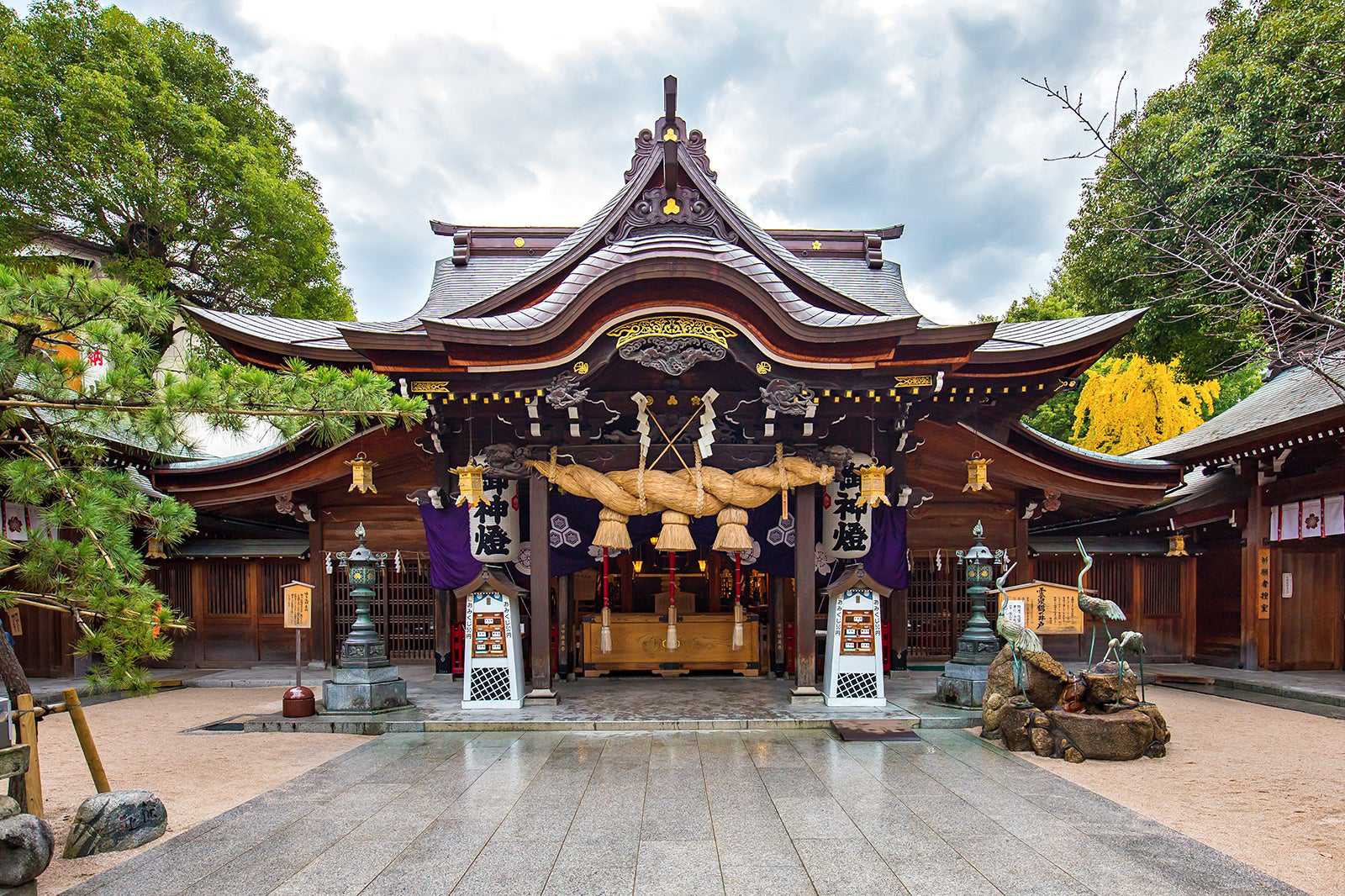
- คู่รัก
- กลุ่ม
- คนโสด
The Hakata crowd affectionately refer to Kushida Shrine as "Okushida-san". For more than 750 years this shrine has acted as the guardian of Hakata. In fact, the famous Hakata Gion Yamakasa summer festival is dedicated to this shrine. On the last day of winter (Setsubun) in February, Japan's largest "Otafuku" face is displayed and the Setsubun Festival is held with beans scattered to ward off evil spirits. The sacred "Kushida no Ginnan" tree within the shrine grounds is said to be 1,000 years old and is revered as a symbol of longevity. The wood carvings of the wind god Raijin on the left and right of the worship hall gable show the god cheekily sticking its tongue out, making it a popular photo spot. To get here, take the subway train to Nakasu-Kawabata Station or Gion Station and then walk for about 8 minutes.
ที่ตั้ง: 1-41 Kamikawabatamachi, Hakata-ku, Fukuoka 812-0026, Japan
เปิด: Main shrine worship times are from 4 am to 10 pm
แผนที่ - 7
Fukuoka Red Brick Culture Museum
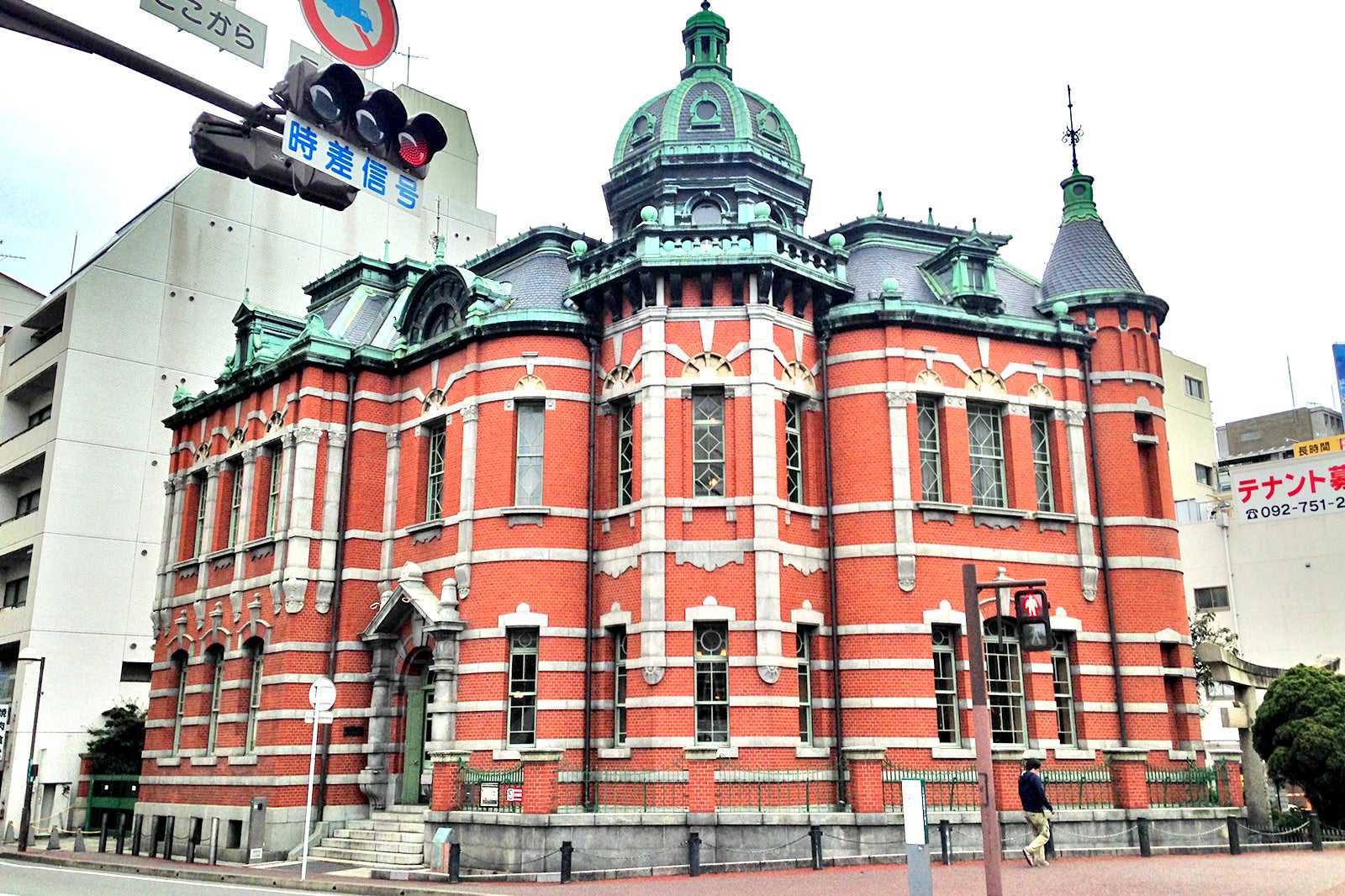
- คู่รัก
- กลุ่ม
- คนโสด
The Fukuoka Red Brick Culture Museum is impressively housed in a red-brick building with white granite outer walls, a blue domed roof, and a spire. Built in 1909 as the Nippon Life Insurance Company's Kyushu branch, it was designed by Tatsuno Kingo and Yasushi Kataoka, the architects who designed Tokyo Station. The building is a designated nationally important cultural property and was reopened in 2019 after extensive restoration. It's a real retro trip with elegant art nouveau lamps, a marble gas hearth and a spiral staircase. Admission is free. Nearby you'll also find the Former Fukuoka Prefectural Public Hall Kihinkan, which was built at roughly the same time in the Meiji period. This is a wooden public building in the French Renaissance style, and it's well worth a visit for its café and attractions such as trying on vintage costume.
ที่ตั้ง: 1-15-30 Tenjin, Chuo-ku, Fukuoka 810-0001, Japan
เปิด: Open from 9 am to 10 pm Closed on last Monday of the month and New Year holidays
แผนที่ภาพโดย そra Mi Mi (CC BY-SA 4.0) เวอร์ชั่นแก้ไข
- 8
Momochi Seaside Park
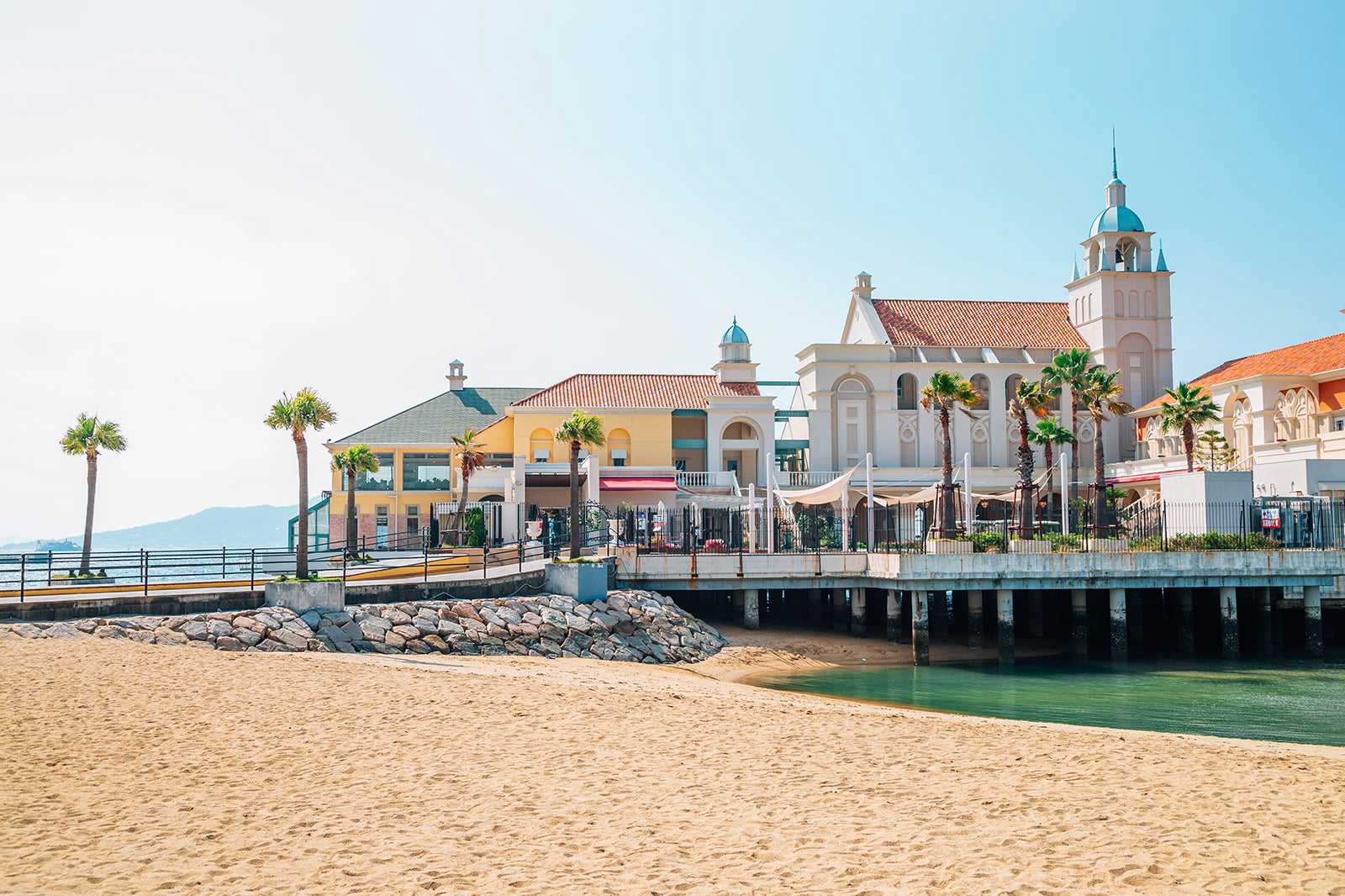
- คู่รัก
- ครอบครัว
- กลุ่ม
Situated on the north side of Fukuoka Tower, Momochi Seaside Park has its own artificial beach. Other nearby attractions include Fukuoka City Museum and Fukuoka PayPay Dome. Sometimes there are live music performances on the beach, which is sandy and also draws locals who want to enjoy beach sports such as beach volleyball and football. The sea in front of the beach is divided into areas for different activities such as jet-skiing, swimming, and use of inflatable boats. In summertime this is the perfect place to splash about without having to leave the city. And in spring, you can go clam digging at low tide in most areas. Check the time of the tide and go out with a rake and a bucket to see what you can find. To get here, take the train to Nishijin Station on the Subway-Kuko Line and walk for 15 minutes.
ที่ตั้ง: 2-chome and 4-chome, Momochihama, Sawara-ku, Fukuoka 814-0001, Japan
เปิด: Open all year round
แผนที่ - 9
Hakata Old Town
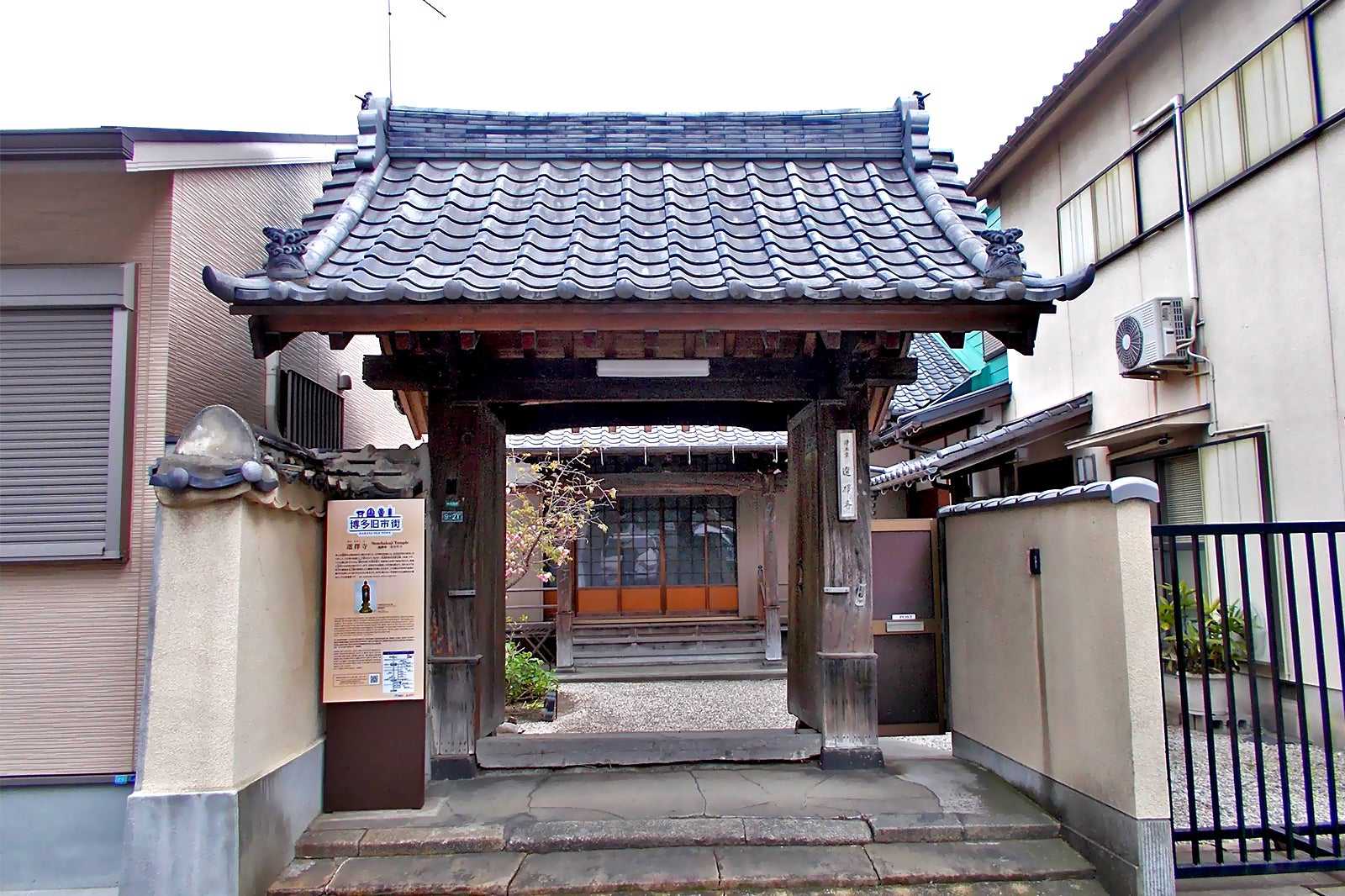
- คู่รัก
- กลุ่ม
- คนโสด
Hakata was Japan's largest trading city in the Middle Ages. The area now known as "Hakata Old Town" was once the prosperous centre of Hakata, and even today its historic architecture, traditions, and culture are well preserved. Jotenji Temple, which was built here during the Kamakura period, is the birthplace of Hakata Gion Yamakasa, one of the three major festivals of Hakata. Also, when Enni, who opened the temple, returned from China's Song Province, he brought back the techniques necessary for making udon, soba, and steamed buns, so all of these staples of Japanese food began here. Hakata Old Town is full of temples and shrines such as Tochoji Temple, Myorakuji Temple, and Engakuji Temple, and every autumn these temples and shrines are illuminated at night during the special "Light Up Week" event. You can enjoy some of these illuminations for free. Admission to Jotenji Temple is free of charge, and it's only a 5-minute walk from Gion Station on the subway line.
ที่ตั้ง: 1-29-9 Hakata Ekimae, Hakata-ku, Fukuoka 812-0011, Japan
เปิด: Open all year round
แผนที่ภาพโดย STA3816 (CC BY-SA 4.0) เวอร์ชั่นแก้ไข
- 10
Yanagibashi Rengo Market
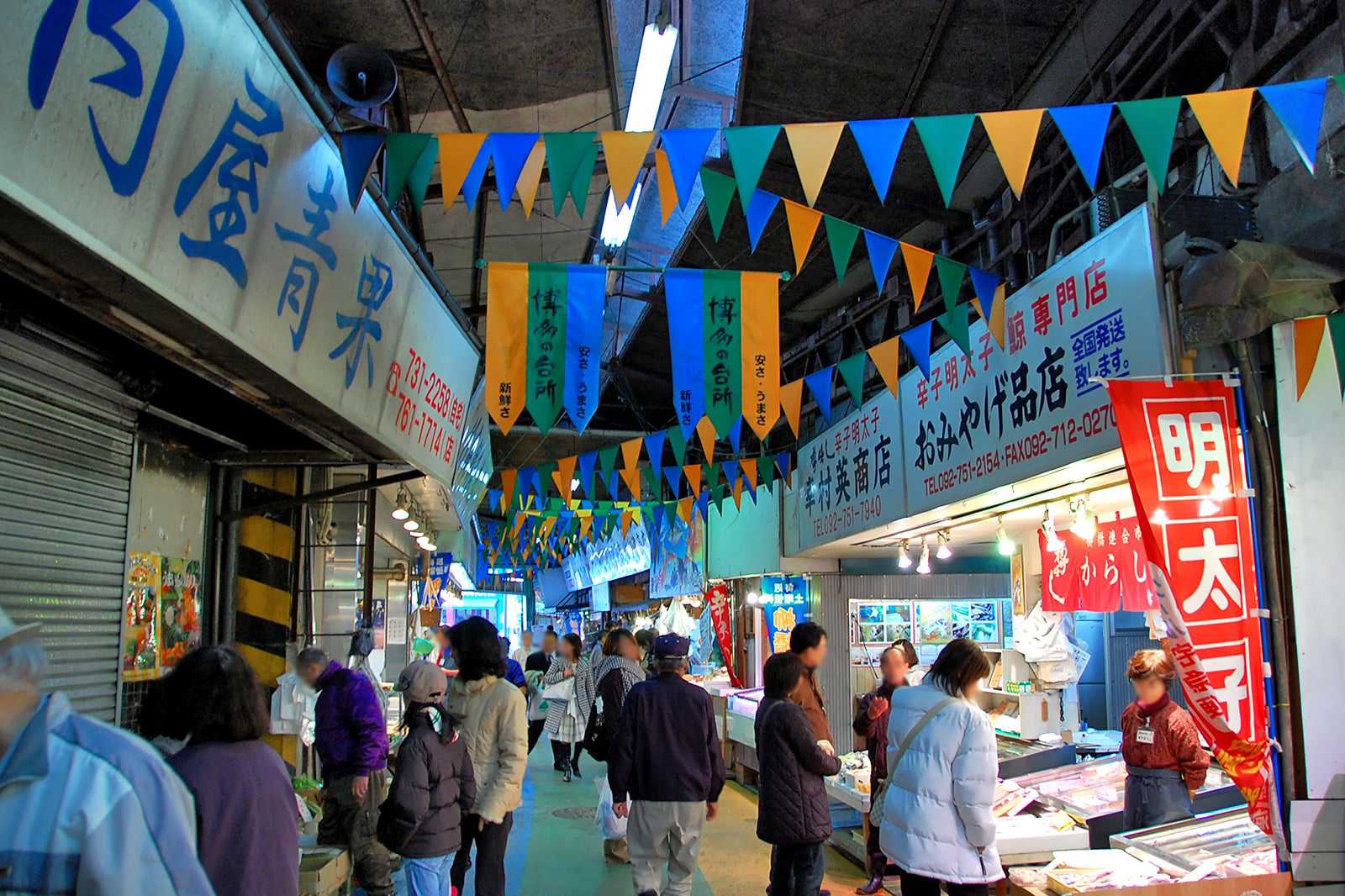
- ประหยัด
- อาหาร
- กลุ่ม
Yanagibashi Rengo Market, also known as "Hakata's Kitchen", is a foodie spot full of retro charm and it's been around since 1918. In the arcade that stretches on for about 100 metres, you'll find plenty of shops serving fine food at reasonable prices. The Takashimaya Japanese sweet shop has been here for many decades and as well traditional Japanese confectionery, its old-fashioned bread is also hugely popular. Also make sure you check out Takamatsu no Kamaboko, which serves a wide range of delicious handmade tempura, kamaboko (steamed fish paste) and croquettes made from minced fish. For lunch, fishmongers serve delicious fresh bowls of seafood on rice. And don't forget to sample some of Hakata's famous mentaiko (salted cod roe).
ที่ตั้ง: 1-5 Haruyoshi, Chuo-ku, Fukuoka 810-0003, Japan
เปิด: Open from 8 am to 5.30 pm Closed on Sundays.
แผนที่

